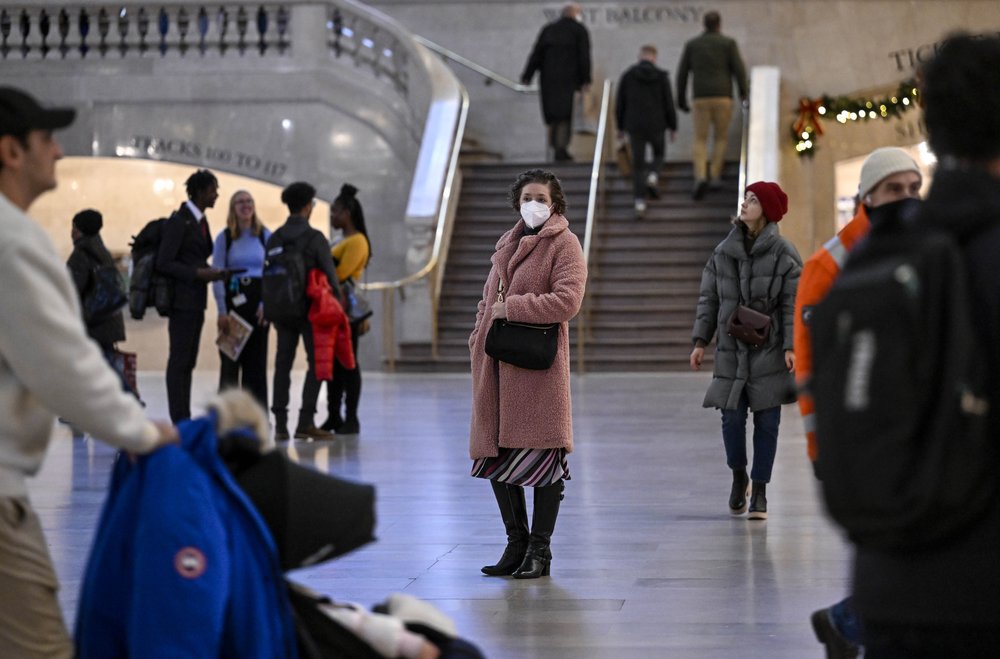NYC flu cases surge past previous years' peaks, health department says
Feb. 3, 2025, 7:50 a.m.
There were more than 23,000 confirmed cases of influenza in the city as of Jan. 25. Health officials are urging New Yorkers to take precautions.

City health officials are urging New Yorkers to get flu shots as influenza cases skyrocket higher than they have been in the last five years.
More than 23,000 people tested positive for the flu virus as of Jan. 25, a 4% increase from the previous week, according to data from the Department of Health and Mental Hygiene. One child has died from the virus so far this season, according to officials.
“Flu season is in full force in NYC,” the department tweeted on Friday. “Cases continue to increase, and current reported cases are higher than during peaks in previous years.”
Flu cases are also surging across New York state, according to the state health department, which reported nearly 52,000 positive cases as of Jan. 25, up 6% from the previous week. It was the seventh consecutive week that flu cases were considered “widespread,” officials said, and the number of patients hospitalized with influenza rose 11%, to more than 3,000.
Flu season is in full force in NYC.
— nychealthy (@nycHealthy) January 31, 2025
Cases continue to increase, and current reported cases are higher than during peaks in previous years.
Make sure you're protected from severe illness! If you still need your flu vaccine, make an appointment today: https://t.co/67YJ8aNULm pic.twitter.com/GCGaNGKCQO
Flu symptoms usually start one to four days after a person is infected, and include fever, fatigue, chills, headache, body aches, cough, runny or stuffy nose and sore throat. Intestinal symptoms like vomiting and diarrhea are also possible, but less common.
Anyone feeling sick should get tested for flu and COVID-19 immediately, the city health department said, because there are treatments that can help prevent severe complications. Clinics, doctors’ offices, public hospitals, urgent care centers and pharmacies typically offer testing.
Officials are encouraging anyone 6 months and older to get vaccinated, especially those with higher risk of severe illness, such as young children, older adults, pregnant women and those with underlying health conditions.
The flu can spread through droplets produced when someone who is sick coughs, sneezes or talks, according to health experts. Another person can get infected if those droplets or saliva enter their eyes, nose or mouth.
That's why officials recommend wearing a well-fitting mask in public, along with covering your coughs and sneezes with your elbow or a tissue, washing or sanitizing your hands often, and staying home while ill. They also advise keeping your hands away from your face and cleaning frequently touched surfaces.
Experts say the best ways to treat the flu include antiviral medicine prescribed by doctors, as well as rest, hydration and over-the-counter medications that reduce fever. Children under 18 should not take products that contain aspirin, like Alka-Seltzer or Pepto-Bismol, since they can cause a rare but serious illness called Reye’s syndrome in young people with flu, according to the city health department.
Officials say anyone experiencing shortness of breath, chest pain, severe weakness or muscle pain should call their health care provider, or go to an urgent care center or emergency room.
Winter surge: NYC faces rising flu and COVID cases, slight RSV dip Avian flu detected in wild birds and Suffolk County poultry farm New Yorkers should mask up as RSV cases spike, health officials say